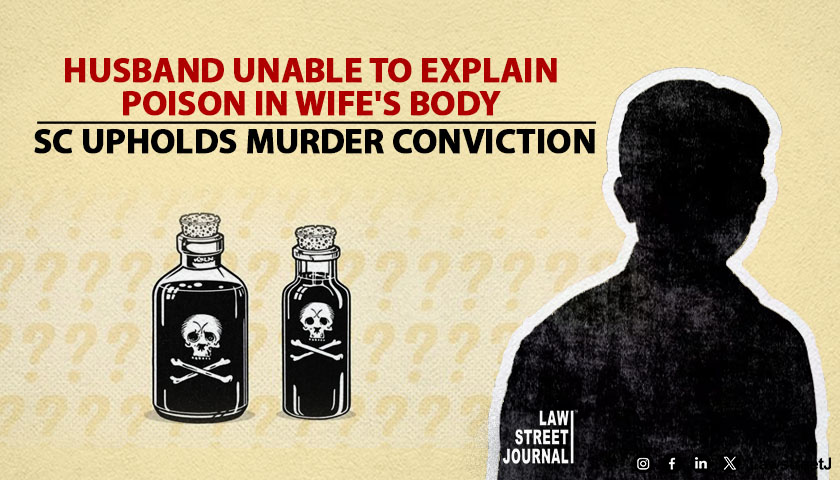NEW DELHI: The Supreme Court has upheld conviction and sentence of life term handed down to a man for murdering his wife as he could not to explain circumstances as to why the deceased was found with poison aluminium phosphide.
A bench of Justices J B Pardiwala and Manoj Misra dismissed an appeal filed by Balvir Singh against the Uttarakhand High Court's judgement of March 24, 2014, upholding the trial court's order of Kotdwar, holding him guilty under Section 302 of the IPC and his mother under Section 498A of the IPC.
The bench highlighted that the courts are expected to be sensitive in cases involving crime against women.
In the case, the top court allowed the prosecution to invoke Section 106 of the Indian Evidence Act which is related to burden of proving facts within knowledge of the accused.
The court found the convict's explanation that the presence of aluminium phosphide in the viscera could be due to the medicines which the deceased used to take for her heart ailment, as absurd.
It said such drugs even in high dosage would not lead to formation of aluminium phosphide in the body. The court also ruled out the theory of suicide advanced by the accused.
"We are of the view that the circumstances constitute more than a prima facie case to enable the prosecution to invoke Section 106 of the Evidence Act and shift the burden on the accused husband to explain what had actually happened on the date his wife died," the bench said.
The court said if the accused is in a position to explain the only alternative theory to his guilt, the absence of explanation could be taken into account.
"In the present case, taking the proved facts together, we are unable even to speculate about any alternative theory which is compatible with the innocence of the accused," the bench said.
Observing that the role of courts in such circumstances assumes greater importance, the bench said, "It is expected that the courts would deal with such cases in a more realistic manner and not allow the criminals to escape on account of procedural technicalities, perfunctory investigation or insignificant lacunas in the evidence as otherwise the criminals would receive encouragement and the victims of crime would be totally discouraged by the crime going unpunished."
The court also said that Section 106 of the Evidence Act cannot be invoked to make up the inability of the prosecution to produce evidence of circumstances pointing to the guilt of the accused.
In the case, the bench said the appellant husband has not explained in any manner as to what had actually happened to his wife more particularly when it is not in dispute that he was in her company.
"It is important to bear in mind that the deceased died on account of poisoning. The poison which was detected in the viscera was found to be aluminium phosphide. He has maintained a complete silence and did not explain in what circumstances and in what manner he had taken his wife to the hospital and how the hospital allowed him to take her body without completing legal formalities," the bench said.
In 1997, the victim, Sudha had married the accused. In June 2007, victims father had filed an application in a magisterial court seeking an FIR in connection with the death of his daughter under suspicious circumstances in May 2007. Later, the womans husband and mother-in-law were arrested.
The apex court dismissed the appeal of the husband but reduced the sentence of the mother-in-law to the period already undergone.
"In the case on hand it has been established or rather proved to the satisfaction of the court that the deceased was in company of her husband i.e. the appellant-convict at a point of time when something went wrong with her health and therefore, in such circumstances the appellant-convict alone knew what happened to her until she was with him," the bench said.
















